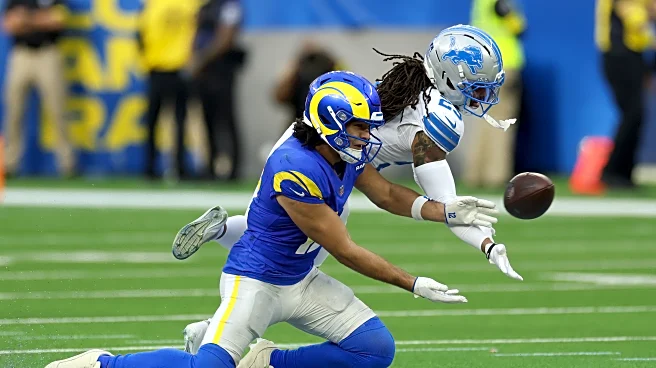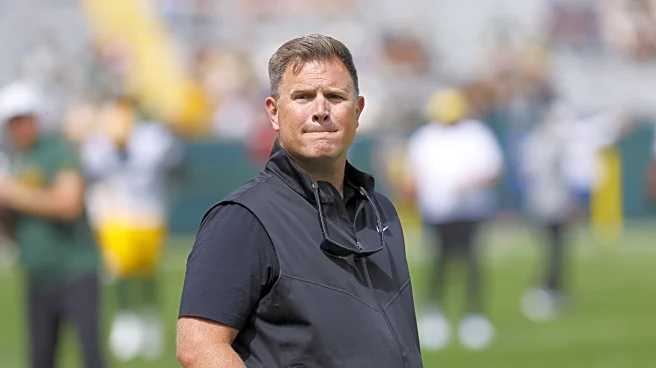What's Happening?
The Premier League and Football League clubs have recently published workforce diversity data, revealing significant disparities in representation among Black and ethnic minority individuals in managerial and decision-making roles. Despite Black players constituting nearly 43% of Premier League footballers, there is a stark underrepresentation in coaching and executive positions. The data shows that 78% of club staff are white, and only two clubs have Black or ethnic minority coaches in senior roles. This issue is underscored by the recent sacking of Nottingham Forest's head coach, Nuno Espirito Santo, a Portuguese manager of Cape Verdean descent, who was one of the few minority managers in the league. The publication of this data aims to increase transparency and accountability in equality, diversity, and inclusion (EDI) strategies.
Why It's Important?
The lack of diversity in managerial roles within the Premier League highlights systemic barriers that prevent Black and ethnic minority individuals from advancing beyond playing roles. This disparity not only affects the individuals who are denied opportunities but also impacts the broader football community by limiting diverse perspectives in decision-making processes. The underrepresentation of Black managers and executives can perpetuate a cycle of inequality, where young Black players lack visible role models in leadership positions. Addressing these disparities is crucial for fostering an inclusive environment that reflects the diversity of the players on the field and promotes social progress within the sport.
What's Next?
The publication of diversity data is a step towards greater transparency, but stakeholders like Kick It Out emphasize the need for actionable reforms rather than just reports. The introduction of policies like the Rooney Rule, which mandates interviewing Black and minority ethnic candidates for managerial roles, could be a potential next step. However, for meaningful change to occur, clubs must commit to these policies and actively work to dismantle the barriers that prevent Black and ethnic minority individuals from advancing in their careers. The football community, including players, fans, and governing bodies, will likely continue to advocate for these changes to ensure that diversity is not only celebrated on the pitch but also in the boardrooms.
Beyond the Headlines
The issue of diversity in football management is not just about representation but also about creating a culture of inclusion and equity. The current lack of diversity in leadership roles can have long-term implications for the sport, including perpetuating stereotypes and limiting the potential for innovative strategies that come from diverse leadership. Additionally, the visibility of Black managers can inspire future generations and contribute to breaking down racial barriers in other sectors. The football industry has the opportunity to lead by example in promoting diversity and inclusion, which could have a ripple effect across other industries and society as a whole.










